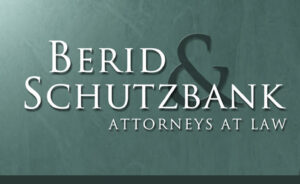Divorce is as much a financial shock as it is an emotional one. Alimony and child support may take a substantial out of your monthly paycheck. The paying spouse may think that the amount they are paying seems unfair or extremely high while the receiving spouse feels it is not fair or extremely insufficient. The reality is that there is never as much money after a divorce because it is the same gross income of the parties to support two households instead of one. Whether you were the primary wage earner or if your income is much smaller than your soon-to-be-ex-spouse’s, or if you stayed at home to look after the family, you might find yourself in dire financial straits if you are not awarded a just settlement.
A fair and just divorce settlement must take into account your circumstances and your contributions to the marriage— including financial, logistical parenting and/or emotional. In this article, you will find three steps to follow to protect your assets in divorce and reach the settlement that is best for you.
I. Be Open and Honest—and Savvy
On your end, it is important not to hide any of your assets. Hiding your assets, or even appearing to hide your assets, may be used against you in court by your spouse and his or her counsel.
In fact, most people’s attempts to hide their assets—by spending large amounts of cash or placing assets in someone else’s name fail to improve their divorce outcomes. This is for two reasons. First, because Massachusetts family courts take into account income (earnings) rather than expenditure (spending) when considering spousal or child support. Second, because assets are defined as more than cash, excessive spending fails to protect non-liquid holdings like stocks, bonds, and even intellectual property and assets in other people’s names can easily be tracked down.
To understand the full scope of your assets, it is worth investing in professional help to you value and locate them. This way you can have the knowledge you need to make a sound decision in resolving your case or determining to take it to trial.
II. Pursue Discovery
Discovery is simply the legal name for exchanging information. Pursuing discovery isn’t just because your spouse was not honest about their assets or the marital estate. Often, one spouse has more knowledge about the marital estate than the other or the parties simply did not communicate with one another well about finances. While you should be honest about your assets, you should not assume your spouse has accurately stated assets on a financial statement. Often one party is merely guessing about what they have or may not remember to include everything. There are also those cases where a spouse is hiding assets or intentionally not disclosing everything. The stress of even an amicable divorce can make people make mistakes or even do desperate things —even honest people. Of course, you may be divorcing because of habitual dishonesty or financial abuse. In these cases, especially it is important to pursue the discovery process.
Like in any legal matter, discovery serves to expose the facts of the case. Under legal penalties, your spouse will be forced to hand over financial documents to confirm how much and where assets, joint or otherwise, are. If your divorce discovery includes a deposition, your spouse will be forced to answer questions honestly or risk perjury charges. Thankfully, most divorces are not the War of the Roses and are handled honestly and fairly by both sides and their attorneys.
III. Be Prepared
If there is a single take-away you should remember while preparing for an equitable division of assets assets, it is this: be prepared. Be prepared in the event that your spouse isn’t honest in his or her disclosures. Be savvy by having assets professionally valuated where appropriate. Become knowledgeable about the marital and non-marital estate so you can determine what is a fair and reasonable settlement. Doing your due diligence in discovery is not accusing your spouse of hiding anything. It is merely being prepared so you can reach an equitable settlement in your best interests.
Consult with a skilled family law attorney, like Attorney Eric Schutzbank, to make navigating hearings and court-dates easier, all while protecting your rights and interests.



